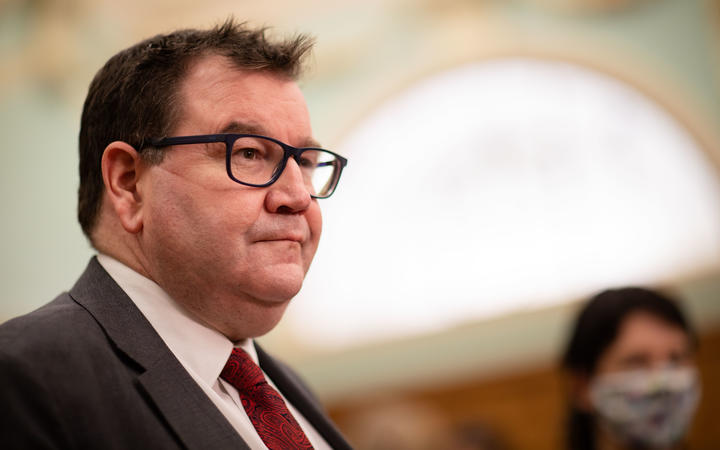
The Reserve Bank (RBNZ) earlier this month stepped up the battle against inflation with an increase of half of a percentage point in the Official Cash Rate (OCR) to 1.5 percent, with a warning that further rises are coming.
Food prices were 7.6 percent higher in March than the year before - the biggest annual increase in more than a decade.
With the inflation figure for the first quarter due to be announced on Thursday, Robertson was unwilling to speculate on what the figure might be, but said inflation had not peaked yet.
Robertson told Morning Report all commentators were predicting an increase in the inflation figure this quarter, and potentially the second quarter as well.
"I expect that it will be rising, as it is right around the world.
"The amount that it rises by is obviously what everyone is debating."
He said the cut in the fuel excise duty and road user charges might keep inflation in check but it was a global phenomenon driven by supply chain constraints, the impacts of Covid-19 and the war in Ukraine.
In the US and UK the inflation rate has now topped 8 percent.
He agreed some households were facing a crisis with the rise in prices for food and petrol.
A substantial package from the government that took effect on April 1 to help low- and middle-income households, plus the cut in the fuel excise duty, was relieving some of the pressure, he said.
The package provided significant increases for those on Income Support and people receiving the Family Tax credit, with the fuel initiative adding some more relief.
Winter energy payments would begin on May 1 for those on the lowest incomes plus superannuitants, he said.
He ruled out removing GST from some food items.
"I acknowledge this is a challenging time for many people but it's hard to come through a 100-year economic shock caused by Covid without some impacts."
Robertson said Prime Minister Jacinda Ardern's first overseas trip in two years was significant.
Singapore and Japan were New Zealand's fourth and fifth biggest trading partners, so the trip was a chance to talk trade and tourism. The prime minister was accompanied by representatives of the dairy, energy, food and technology sectors.
"It's a great opportunity to get out there and sell New Zealand."
In Japan there was a chance to explore opportunities around renewable energy, building on cooperation between companies in the two countries on hydrogen.
"We think there's a real opportunity for us to partner with a very large market there on how those technologies develop."
It was the beginning of several trips that Ardern and ministers will make as the country reconnects with the world.
He disputed Export New Zealand's view that the country had become a "hermit kingdom", and said the export sector had played its part with some support from the government in helping New Zealand to prosper through the pandemic.












